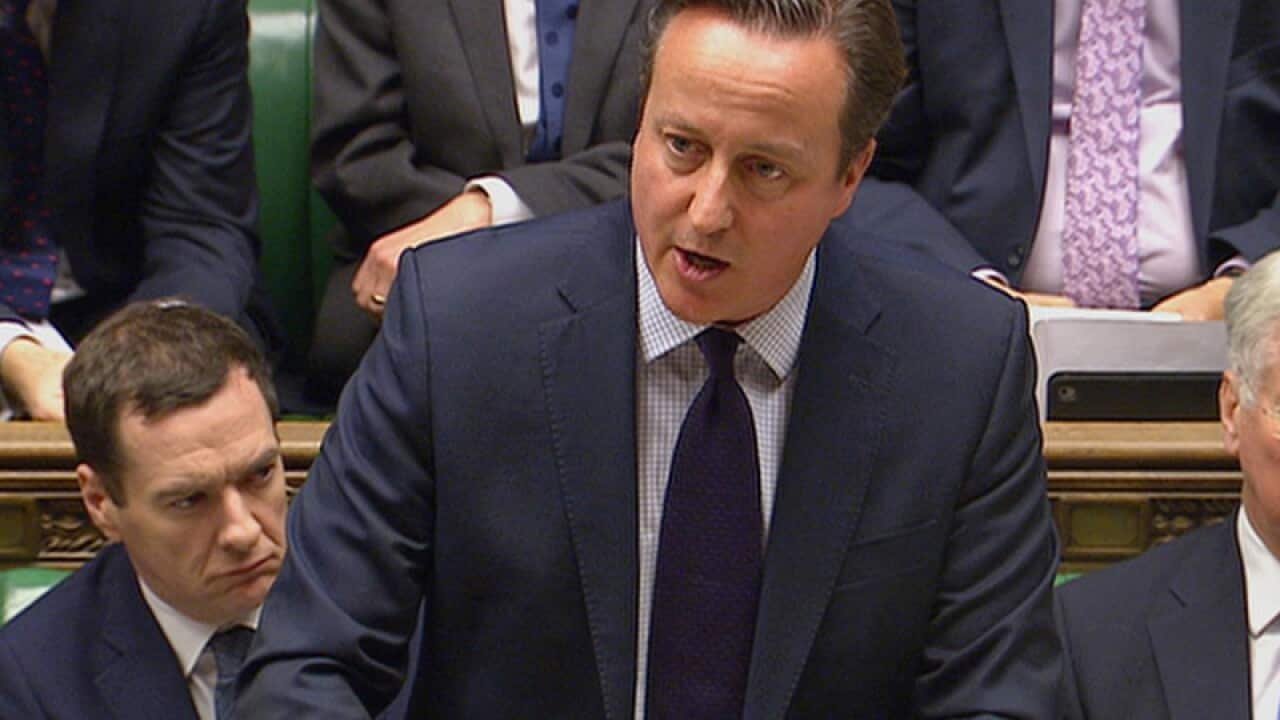Britain's parliament has voted to launch bombing raids against Islamic State in Syria, supporting Prime Minister David Cameron's case that the country needs to help destroy militants who are "plotting to kill us".
After more than 10 hours of tense debate, MPs voted in favour of air strikes, by 397 to 223. British Tornado GR4 bombers could leave an air base in Cyprus within hours to launch the country's latest military action in the Middle East.
"Britain is safer tonight because of the decision that the House of Commons has taken," foreign minister Philip Hammond told Sky News.
Many British voters are wary of being dragged into another war in the Middle East. Some view Western intervention in Iraq and Libya as a failure that sowed chaos across the region and the news of the vote was met by howls of disgust by dozens of anti-war protesters outside parliament.
But the November 13 attacks on Paris, that were claimed by Islamic State, have stiffened the resolve of some MPs and divided the opposition Labour Party, which convinced Cameron he could win the support of parliament for extending air strikes beyond Iraq.
Cameron said the more than four-year Syrian civil war could not be resolved by military action alone, but that the strikes would "degrade" Islamic State militants.
"These terrorists are plotting to kill us and to radicalise our children," Cameron told a packed House of Commons.
"Do we work with our allies to degrade and destroy this threat, and do we go after these terrorists in their heartlands, from where they are plotting to kill British people, or do we sit back and wait for them to attack us?"
Germany's parliament is also expected to vote on Friday in favour of joining the campaign against Islamic State, although only to provide military support for air strikes, not actually to take part in them.
France and the United States are already bombing Islamist militants in Syria, while Russia has bombed mainly other rebels, according to conflict monitors, in an intervention launched on September 30 to bolster its ally, Syrian President Bashar al-Assad. The West says Assad must go.
The vote is a blow to the leader of Britain's main opposition Labour Party, Jeremy Corbyn.
A veteran anti-war campaigner who argued the bombing would be ineffective and kill civilians, Corbyn was forced to allow his MPs to vote according to their conscience in order to quell a rebellion in his party over the military action.
Many of his party voted with the prime minister, a move which may bring into question Corbyn's leadership.
The British public is divided over the strikes, with a YouGov opinion poll showing voter support for action in Syria had fallen to the lowest level since September 2014, with 48 per cent of respondents supporting strikes and 31 per cent against.









